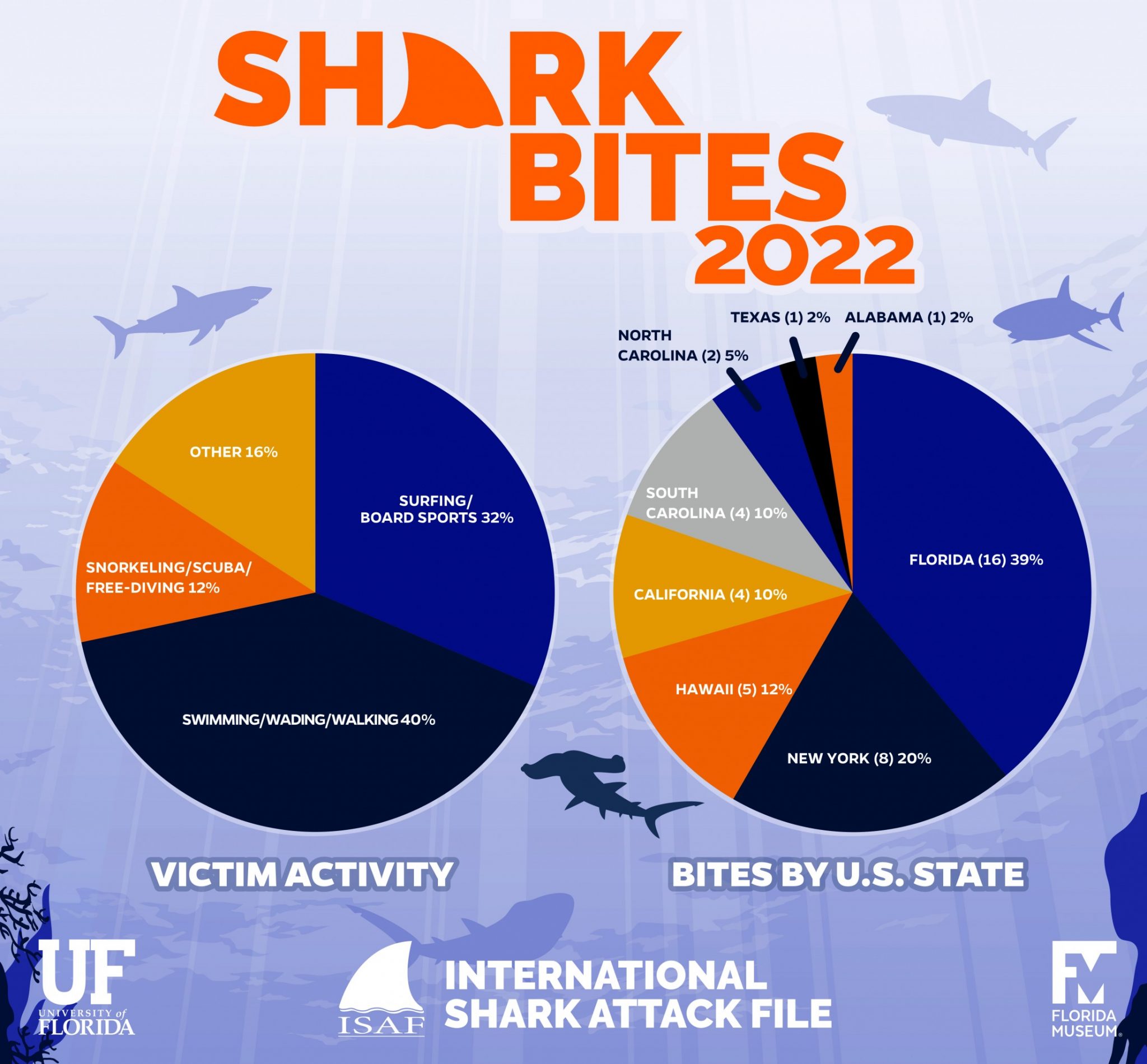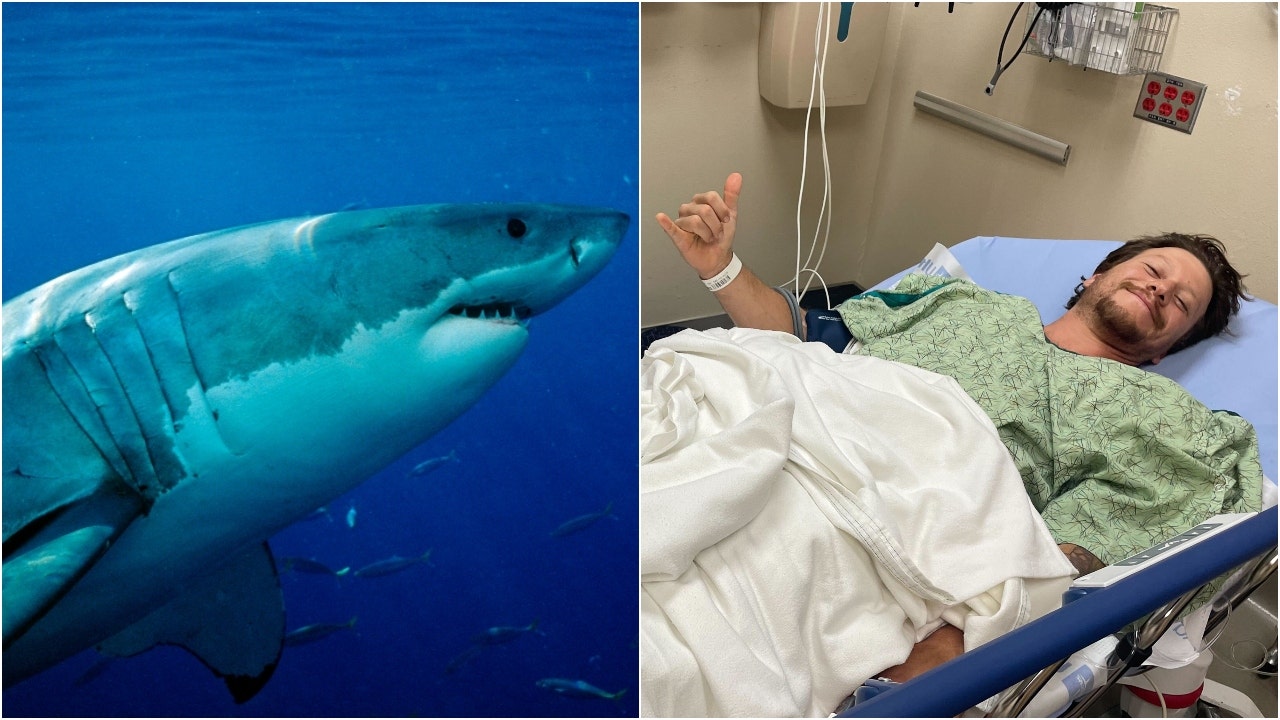Fine Beautiful Info About Do Shark Bites Hurt

The Question That Bites
1. Understanding the Shark Bite Experience
Let's be honest, just the idea of a shark bite sends shivers down your spine, doesn't it? We've all seen the movies, the documentaries, the sensationalized headlines. But what's the actual sensation? Does a shark bite hurt as much as our imaginations suggest? Well, buckle up, because we're diving deep into the, ahem, toothy truth.
One thing that often gets overlooked is the sheer variety of sharks. We're not just talking Great Whites here. There are hundreds of different species, from the tiny dwarf lanternshark to the massive whale shark (which, thankfully, filters feeds and poses no threat to humans). Each has a unique bite style and potential impact. A nibble from a small reef shark is going to feel quite different than a chomp from a tiger shark, wouldn't you agree?
Also, the circumstances of a shark bite are crucial. Was it a provoked attack? A case of mistaken identity (a surfer looking suspiciously like a seal)? Or just an exploratory nip? The shark's motivation, or lack thereof, will certainly influence the severity — and therefore, the pain — of the encounter. Imagine accidentally bumping into something versus someone intentionally punching you! Different experiences, different pain levels.
So, while a definitive "yes" or "no" answer is tricky, we can start to unravel this mystery. It's not as simple as "shark bites equal agonizing pain." There are nuances, variables, and a whole lot of "it depends" involved. Let's keep swimming!

What Is Most Common Shark Bite? How To Identify The Animal Attack Marks
The Anatomy of a Bite
2. Deconstructing the Shark Bite
Okay, let's get down to the nitty-gritty (oops, almost slipped up there!). A shark's teeth are formidable, no doubt about it. Rows upon rows of razor-sharp triangles designed for slicing and gripping. But the teeth are only part of the equation. The jaw strength is another crucial factor. Some sharks have bone-crushing bite forces, capable of inflicting serious damage. Think of it like this: a sharp knife is dangerous, but a sharp knife wielded with incredible force is even more so.
Now, let's add a dash of biological complexity. When a shark bites, it's not just the physical trauma that's at play. There's also the element of shock. The suddenness of the attack, the adrenaline surge, the potential blood loss — all of these things can impact how the pain is perceived. Your body's natural response to a traumatic event can either amplify or, in some cases, temporarily mask the pain.
Furthermore, the location of the bite is incredibly important. A bite on the leg might be excruciating, but a bite that severs a major artery could lead to rapid blood loss and potentially unconsciousness, which could, ironically, reduce the overall pain experience, at least temporarily. The pain might be secondary to the shock of the injury itself.
And don't forget about nerve damage! Depending on the severity and location of the bite, there could be long-term nerve damage, resulting in chronic pain or altered sensation. So, the immediate pain is only part of the story. The aftermath can be a whole different ball game.

5 Things To Know For Aug. 28 Trump Indictment, AT&T Outage, Hostage
Beyond the Initial Bite
3. The Psychological Impact and Long-Term Effects
Even if a shark bite isn't immediately excruciating (and let's be clear, many are), the psychological impact can be profound. Imagine the terror of being attacked by a predator, the feeling of helplessness, the fear of future attacks. This trauma can linger long after the physical wounds have healed. Post-traumatic stress disorder (PTSD) is a very real concern for shark bite survivors.
The adrenaline rush that accompanies a shark attack can also play tricks on your perception of pain. Adrenaline is a powerful hormone that can temporarily block pain signals, allowing you to focus on survival. This is why some shark bite victims report feeling relatively little pain during the initial attack, only for the pain to intensify later on as the adrenaline wears off. Think of it as your body's emergency override system.
Then there's the recovery process. Shark bites can be messy, often requiring extensive surgery, skin grafts, and physical therapy. The healing process can be painful and challenging, both physically and emotionally. It's not just about closing the wound; it's about rebuilding tissue, restoring function, and coping with the psychological scars.
Furthermore, the potential for infection is a serious concern with any animal bite, including shark bites. Sharks' mouths are teeming with bacteria, and these bacteria can cause serious infections if left untreated. So, prompt medical attention is crucial, not just for treating the immediate wound but also for preventing long-term complications.

Pain Perception
4. The Subjective Nature of Pain and Shark Bites
Okay, let's get a little philosophical here. Pain is a subjective experience. What one person perceives as excruciating, another might describe as merely uncomfortable. Our individual pain thresholds, our past experiences, and even our current mood can all influence how we perceive pain. So, even if we could measure the exact force of a shark bite and the extent of the tissue damage, we still couldn't predict exactly how much pain a particular victim would experience.
Think about it: have you ever stubbed your toe and reacted with a primal scream, while other times you've barely flinched? The physical stimulus was the same, but your reaction was different. This illustrates the complex interplay between physical sensation and psychological interpretation. Pain isn't just a signal from your body to your brain; it's an experience that's shaped by your brain.
This is why anecdotal accounts of shark bites can vary so widely. Some survivors describe excruciating pain, while others report feeling surprisingly little. These differences aren't necessarily due to differences in the severity of the bites; they could simply reflect differences in individual pain perception.
So, while we can talk about the potential for pain associated with shark bites, it's important to remember that the actual experience is highly individual. There's no one-size-fits-all answer. It truly "depends" on a combination of variables.

So, Does It Hurt? A (Somewhat) Definitive Answer
5. Wrapping It Up
Alright, after all that, where does that leave us? Does a shark bite hurt? The most honest answer is: it likely does. The combination of sharp teeth, powerful jaws, tissue damage, shock, and potential for infection all points to a painful experience. However, the intensity of that pain can vary widely depending on the species of shark, the location and severity of the bite, and the individual's pain tolerance and psychological state.
It's also worth noting that many shark bites are relatively minor, resulting in only superficial wounds. These bites might be more startling than truly painful. In fact, some people who have been bitten by sharks don't even realize it at first, mistaking the bite for a bump or a scrape. Of course, these are the exceptions, not the rule.
Ultimately, the best way to avoid finding out how much a shark bite hurts is to avoid getting bitten in the first place. Be mindful of your surroundings when swimming or surfing in areas where sharks are known to inhabit, avoid swimming at dawn or dusk when sharks are most active, and never provoke or harass a shark. Common sense goes a long way!
And if, despite your best efforts, you do find yourself on the receiving end of a shark bite, remember to stay calm (easier said than done, I know), control the bleeding, and seek immediate medical attention. Your experience will certainly add to the collective understanding of "shark bite pain," and hopefully, it won't be too excruciating!

Are Cookiecutter Sharks Dangerous?
FAQ
6. Your Burning Questions Answered
Got more questions about shark bites and the pain they inflict? Here are some quick answers to frequently asked questions:
Q: What's the most painful part of a shark bite?
A: It varies, but often the tearing of tissue and potential nerve damage are primary sources of pain. Also, the subsequent infection can be very painful.
Q: Does adrenaline help reduce pain during a shark attack?
A: Yes, adrenaline can temporarily block pain signals, allowing you to focus on survival.
Q: Are some shark bites more painful than others?
A: Absolutely. Larger sharks with stronger jaws and more teeth are capable of inflicting more severe and potentially more painful bites.
Q: What should I do immediately after a shark bite?
A: Stay calm, control the bleeding with direct pressure, and seek immediate medical attention. Don't try to "fight" the shark if you can avoid it; focus on getting to safety.